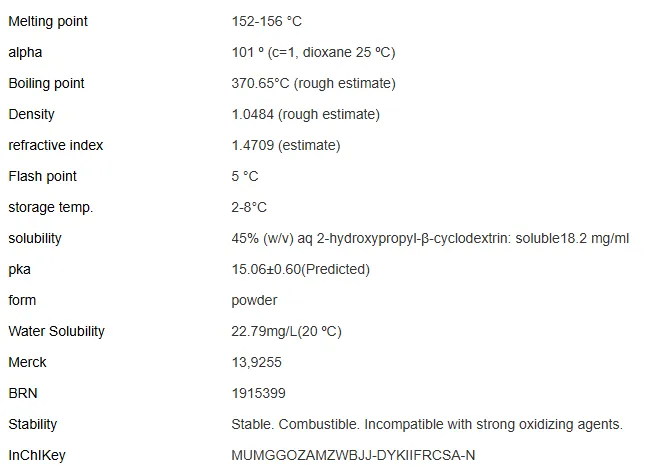Warning: Undefined array key "title" in /home/www/wwwroot/HTML/www.exportstart.com/wp-content/themes/1198/header.php on line 6
Warning: Undefined array key "file" in /home/www/wwwroot/HTML/www.exportstart.com/wp-content/themes/1198/header.php on line 7
Warning: Undefined array key "title" in /home/www/wwwroot/HTML/www.exportstart.com/wp-content/themes/1198/header.php on line 7
Warning: Undefined array key "title" in /home/www/wwwroot/HTML/www.exportstart.com/wp-content/themes/1198/header.php on line 7
- Afrikaans
- Albanian
- Amharic
- Arabic
- Armenian
- Azerbaijani
- Basque
- Belarusian
- Bengali
- Bosnian
- Bulgarian
- Catalan
- Cebuano
- China
- China (Taiwan)
- Corsican
- Croatian
- Czech
- Danish
- Dutch
- English
- Esperanto
- Estonian
- Finnish
- French
- Frisian
- Galician
- Georgian
- German
- Greek
- Gujarati
- Haitian Creole
- hausa
- hawaiian
- Hebrew
- Hindi
- Miao
- Hungarian
- Icelandic
- igbo
- Indonesian
- irish
- Italian
- Japanese
- Javanese
- Kannada
- kazakh
- Khmer
- Rwandese
- Korean
- Kurdish
- Kyrgyz
- Lao
- Latin
- Latvian
- Lithuanian
- Luxembourgish
- Macedonian
- Malgashi
- Malay
- Malayalam
- Maltese
- Maori
- Marathi
- Mongolian
- Myanmar
- Nepali
- Norwegian
- Norwegian
- Occitan
- Pashto
- Persian
- Polish
- Portuguese
- Punjabi
- Romanian
- Russian
- Samoan
- Scottish Gaelic
- Serbian
- Sesotho
- Shona
- Sindhi
- Sinhala
- Slovak
- Slovenian
- Somali
- Spanish
- Sundanese
- Swahili
- Swedish
- Tagalog
- Tajik
- Tamil
- Tatar
- Telugu
- Thai
- Turkish
- Turkmen
- Ukrainian
- Urdu
- Uighur
- Uzbek
- Vietnamese
- Welsh
- Bantu
- Yiddish
- Yoruba
- Zulu
Dec . 06, 2024 08:19 Back to list
The Impact of Cyclamate and Saccharin on Health and Consumer Preferences
The Sweet Debate Cyclamate and Saccharin
In today’s health-conscious society, artificial sweeteners have become a topic of considerable discussion. Among the most debated are cyclamate and saccharin, two of the earliest synthetic sweeteners developed during the early 20th century. Both have been utilized extensively in the food industry, particularly for products aimed at calorie-conscious consumers, but their safety and potential health implications continue to be scrutinized.
Cyclamate was discovered in 1937 by chemist Michael Sveda at the University of Illinois. It is approximately 30 to 50 times sweeter than sucrose, making it an attractive option for sweetening foods and beverages without adding calories. Initially, cyclamate gained immense popularity and was commonly used in diet sodas and low-calorie foods. However, its reputation took a hit in the 1970s when studies suggested a potential link to cancer in laboratory rats. As a result, the United States Food and Drug Administration (FDA) banned cyclamate in 1970, declaring it unsafe for human consumption. Despite this, cyclamate remains legal in many other countries, where it is often combined with other sweeteners to enhance flavor without increasing caloric intake.
On the other hand, saccharin was discovered even earlier, in 1879, by scientist Constantin Fahlberg. It is one of the oldest artificial sweeteners and is around 300 times sweeter than sucrose. The widespread usage of saccharin also faced significant scrutiny. In the 1970s, it was implicated in potential carcinogenic effects, leading to a ban in certain jurisdictions and mandatory warning labels on products containing it. However, extensive research over the years has found no definitive link between saccharin and cancer, leading the FDA to remove the warning label requirement in 2000. Today, saccharin is widely used, often found in diet sodas, sugar-free gum, and various other food products.
cyclamate and saccharin

The concerns surrounding both cyclamate and saccharin hint at a broader debate about artificial sweeteners
. Proponents argue that these substances provide excellent solutions for people managing weight, diabetes, or simply seeking to reduce sugar intake. They contribute to the formulation of low-calorie products that can satisfy sweet cravings without the associated health risks of high sugar consumption, such as obesity, diabetes, and dental issues.Conversely, critics of artificial sweeteners argue that potential health risks should not be underestimated. While regulatory agencies like the FDA and the European Food Safety Authority have deemed both cyclamate and saccharin safe for consumption in moderate amounts, the question remains whether long-term consumption poses risks that have not yet been fully studied. Some studies suggest that the consumption of artificial sweeteners might affect gut microbiota or influence cravings for sweet foods, potentially leading to an increase in overall caloric intake.
Another aspect of the debate involves personal preference and taste. Users of cyclamate often appreciate its flavor profile, which can blend harmoniously with a variety of foods and beverages. Saccharin, while also widely used, has a distinct aftertaste that some consumers find unappealing. Blending these sweeteners with others, such as aspartame or sucralose, has become a common practice in the food industry to achieve a more balanced sweetness that appeals to a broader audience.
In conclusion, the debate surrounding cyclamate and saccharin remains a multifaceted issue rooted in history, science, and consumer preferences. As the obesity epidemic continues to rise globally, the demand for low-calorie food options is unlikely to wane. While cyclamate and saccharin play a significant role in meeting this demand, it is essential for consumers to stay informed about their choices. Regulatory bodies continue to monitor these sweeteners' safety, but as with many dietary components, moderation is key. The landscape of artificial sweeteners is ever-evolving, and ongoing research will be vital in addressing the concerns and benefits surrounding these sweet alternatives. Ultimately, whether one chooses to indulge in cyclamate, saccharin, or natural sweeteners, awareness and education are crucial in making informed health decisions.
Latest news
-
Certifications for Vegetarian and Xanthan Gum Vegetarian
NewsJun.17,2025
-
Sustainability Trends Reshaping the SLES N70 Market
NewsJun.17,2025
-
Propylene Glycol Use in Vaccines: Balancing Function and Perception
NewsJun.17,2025
-
Petroleum Jelly in Skincare: Balancing Benefits and Backlash
NewsJun.17,2025
-
Energy Price Volatility and Ripple Effect on Caprolactam Markets
NewsJun.17,2025
-
Spectroscopic Techniques for Adipic Acid Molecular Weight
NewsJun.17,2025

